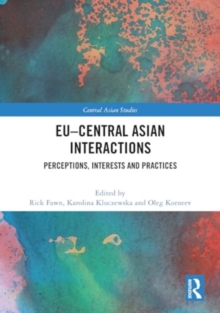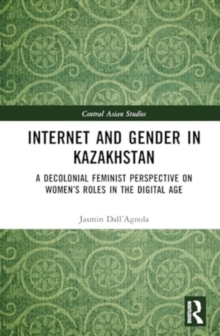
From Conflict to Autonomy in the Caucasus : The Soviet Union and the Making of Abkhazia, South Ossetia and Nagorno Karabakh EPUB
by Arsene Saparov
Part of the Central Asian Studies series
EPUB
Description
This book is the first historical work to study the creation of ethnic autonomies in the Caucasus in the 1920s - the transitional period from Russian Empire to Soviet Union. Seventy years later these ethnic autonomies were to become the loci of violent ethno-political conflicts which have consistently been blamed on the policies of the Bolsheviks and Stalin. According to this view, the Soviet leadership deliberately set up ethnic autonomies within the republics, thereby giving Moscow unprecedented leverage against each republic.
From Conflict to Autonomy in the Caucasus questions this assumption by examining three case studies: Abkhazia, South Ossetia and Nagorno Karabakh are placed within the larger socio-political context of transformations taking place in this borderland region during the nineteenth and twentieth centuries. It examines demographic, social and economic consequences of the Russian colonization and resulting replacement of traditional societies and identities with modern ones. Based on original Russian language sources and archival materials, the book brings together two periods that are usually studied separately - the period of the Russian Civil War 1917-20 and the early Soviet period - in order to understand the roots of the Bolshevik decision-making policy when granting autonomies. It argues that rather than being the product of blatant political manipulation this was an attempt at conflict resolution. The institution of political autonomy, however, became a powerful tool for national mobilization during the Soviet era.
Contributing both to the general understanding of the early Soviet nationality policy and to our understanding of the conflicts that have engulfed the Caucasus region since the 1990s, this book will be of interest to scholars of Central Asian studies, Russian/Soviet history, ethnic conflict, security studies and International Relations.
Information
-
Download - Immediately Available
- Format:EPUB
- Pages:216 pages
- Publisher:Taylor & Francis
- Publication Date:27/08/2014
- Category:
- ISBN:9781317637837
Other Formats
- Paperback / softback from £42.99
- PDF from £41.39
- Hardback from £150.00
Information
-
Download - Immediately Available
- Format:EPUB
- Pages:216 pages
- Publisher:Taylor & Francis
- Publication Date:27/08/2014
- Category:
- ISBN:9781317637837










